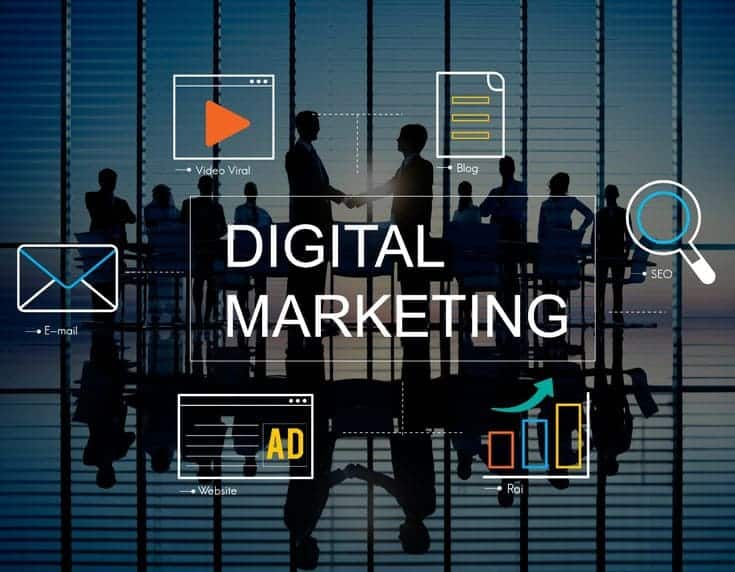Marketing has become one of the most widespread fields, and many prefer to work in it due to its advantages. There are many job titles for a person who works in the field of marketing.
What is the person who works in marketing called?
A person who works in marketing can have various job titles, depending on their specialization, responsibilities, and level of experience. The exact job title depends on the company they work for, their industry, and their experience level. These titles are divided into:
1. General names
- Marketer: A general term that includes all individuals who work in marketing, regardless of their specialization.
- Marketing Specialist: A more specific term that refers to someone with expertise in a particular area of marketing, such as digital marketing, content marketing, or social marketing.
- Marketing Expert: A term used to refer to someone with extensive experience and advanced skills in marketing.
- Marketing Strategist: A term used for someone responsible for developing and implementing comprehensive marketing strategies.
2. Designations according to specialization
- Marketing Manager: Responsible for managing all aspects of marketing activities in the company.
- Digital Marketing Manager: Prepares and implements marketing campaigns
- Content Marketing Manager: Responsible for creating and publishing marketing content that attracts potential customers and builds relationships with current customers.
- Social Media Marketing Manager: Responsible for managing the company’s social media pages and interacting with the audience.
- SEO Specialist: Responsible for optimizing the company’s website and content to rank higher in search engine results pages (SERPs).
- Email Marketing Specialist: Responsible for creating and sending email marketing campaigns.
- Advertising Specialist: Responsible for planning, buying, and managing advertising campaigns.
- Public Relations Specialist: Responsible for building and maintaining relationships with the media and other stakeholders.
- Marketing Writer: Responsible for writing marketing materials, such as website copy, blog posts, and social media posts.
- Marketing Graphic Designer: Responsible for creating marketing materials, such as logos, brochures, and infographics.
- Marketing Analyst: Responsible for collecting and analyzing marketing data to measure the effectiveness of marketing campaigns.
The Difference Between a Marketing Specialist and a Marketing Expert
In general, there is not much difference between a marketing specialist and a marketing expert. Both terms are used to refer to someone who works in the field of marketing. However, there may be some slight differences in their responsibilities, skills, and level of experience.
1. Academic Qualifications
- Marketing Specialist: Holds a university degree in marketing or a related field or may have practical experience in marketing.
- Marketing Expert: Holds a university degree in marketing or a related field and has practical experience in marketing.
2. Responsibilities
1. Marketing Specialist: May be responsible for a variety of tasks, such as:
- Developing and implementing marketing campaigns
- Creating marketing content
- Analyzing marketing data
- Managing customer relationships
2. Marketing Expert: Usually has specialized experience in a particular area of marketing, such as:
- Digital marketing
- Content marketing
- Social marketing
- Search engine optimization (SEO)
- Email marketing
- Advertising
- Public relations
3. Level of Experience
- Marketing Specialist: Has little to moderate experience in marketing.
- Marketing Expert: Has extensive experience in marketing and advanced skills in their area of expertise.
4. Salary
- Marketing Specialist: Earns less than a marketing expert.
- Marketing Expert: Earns more than a marketing specialist due to their experience and advanced skills.
Career Progression in Marketing
The marketing field has a wide and varied career progression, where an employee’s journey starts as a Marketing Assistant and can end as a Marketing Manager or Vice President of Marketing. Below is an overview of the career progression in marketing with some common job titles:
1. Beginner level
1. Marketing Assistant
Typically, employees start in this position as a general assistant to the marketing team. Responsibilities include:
- Managing social media
- Creating simple marketing content
- Analyzing basic marketing data
2. Junior Marketing Specialist
Employees take on more specialized marketing responsibilities. Tasks include:
- Developing marketing campaigns
- Managing email marketing campaigns
- Search Engine Optimization (SEO)
- Analyzing advanced marketing data
2. Experienced Level
1. Marketing Specialist
Employees have extensive experience in a specific marketing area. Responsibilities include:
- Developing and implementing marketing strategies
- Managing the marketing budget
- Measuring marketing campaign performance
- Managing a team of marketing assistants
2. Marketing Analyst
Employees specialize in analyzing marketing data and understanding consumer behavior. Responsibilities include:
- Collecting and analyzing marketing data
- Preparing analytical reports
- Providing recommendations to improve marketing strategies
3. Management Level
1. Marketing Manager
Employees lead all aspects of the company’s marketing activities. Responsibilities include:
- Developing a comprehensive marketing plan
- Managing a team of marketing specialists
- Ensuring marketing goals are met
- Communicating with senior executives
2. Digital Marketing Manager
Employees oversee all aspects of the company’s digital marketing. Responsibilities include:
- Developing and implementing digital marketing strategies
- Managing digital advertising campaigns
- Optimizing the company’s website
- Analyzing digital marketing data
3. Content Marketing Manager
Employees specialize in creating and publishing marketing content that attracts potential customers and builds relationships with current customers. Responsibilities include:
- Developing a content marketing strategy
- Creating high-quality marketing content
- Publishing marketing content across various channels
- Analyzing marketing content performance
4. Senior Executive Level
1. Vice President of Marketing
Employees are responsible for all aspects of the company’s marketing activities and report directly to the CEO. Responsibilities include:
- Developing the company’s overall marketing strategy
- Managing a large team of marketing specialists
- Ensuring company-wide marketing goals are achieved
- Representing the company at marketing-related conferences and events
2. Head of Marketing Department
Employees oversee all marketing departments within the company, including digital marketing, content marketing, public relations, and advertising. Responsibilities include:
- Developing the company’s overall marketing plan
- Managing the overall marketing budget
- Ensuring company-wide marketing goals are achieved
- Communicating with senior executives




